While it may occasionally take a backseat to other factors like horsepower figures, safety ratings and technology features, durability remains one of the most important items consumers consider before purchasing a vehicle. With that in mind, it appears as though full-size GMC trucks and SUVs are among some of the longest-lasting cars.
According to a report from iSeeCars, Toyota products are rated as some of the most likely vehicles to reach 250,000 miles, with the Toyota Tundra and Toyota Sequoia four times more likely to achieve this milestone as compared to the industry average. Not far behind the Japanese automaker are a few GMC trucks and SUVs, as the Yukon XL, Sierra 1500, and Yukon respectively rank 11th, 15th, and 19th overall with a 17.9-, 16.1-, and 14.6-percent chance of reaching a quarter-million miles.
It’s worth noting that the above rankings apply to light-duty vehicles only.
“Modern vehicles are getting more durable, with 30 models offering between a 12- and 36-percent chance of reaching a quarter million miles,” iSeeCars Executive Analyst Karl Brauer noted in a prepared statement. “Many consumers still consider a car’s usable lifespan to end at 100,000 miles. But our latest longest-lasting study confirms that even 200,000 miles isn’t the end of the line for many cars. The top nine cars on this year’s list have a better than 20 percent chance of hitting 250,000 miles.”
In regard to pickup trucks specifically, the GMC Sierra 2500 HD was rated fourth overall with a 29.1-percent chance of lasting 250,000 miles, which was 1.5 times longer than other trucks. For comparison, the aforementioned Sierra 1500 was rated 13th in the pickup category. Interestingly, both these ratings come in just below their Chevy counterparts.
“The long lifespan of heavy-duty trucks inevitably pushes several light-duty models to below average,” Brauer continued. “But as noted in our list of the top 30 longest-lasting vehicles, many of these ‘below average’ trucks do quite well when compared to other light-duty vehicles.”
Be sure to subscribe for GMC Sierra news, GMC Yukon news, GMC news, GM reliability news, GM business news, and more obsessive-compulsive GM news coverage.



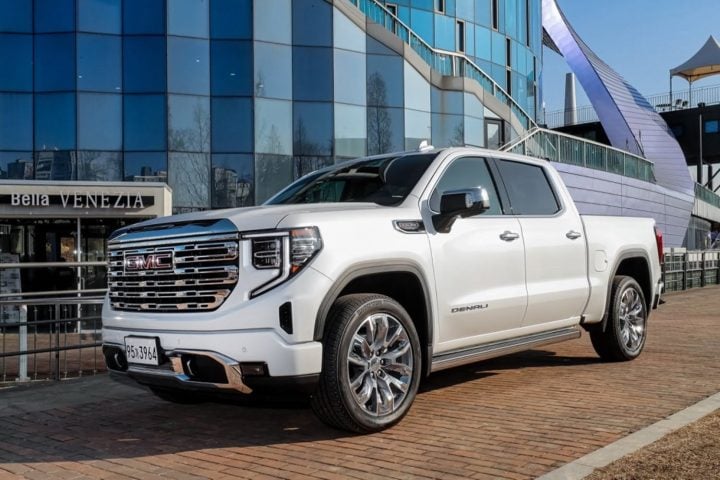


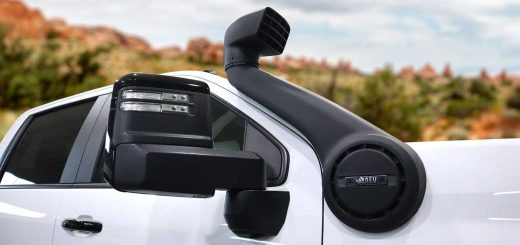
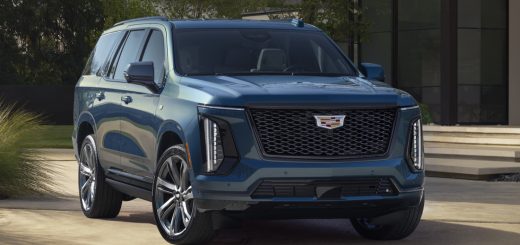
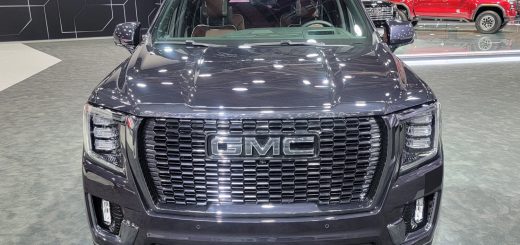
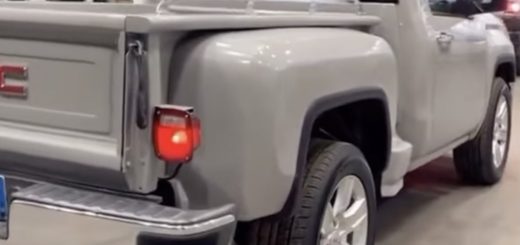
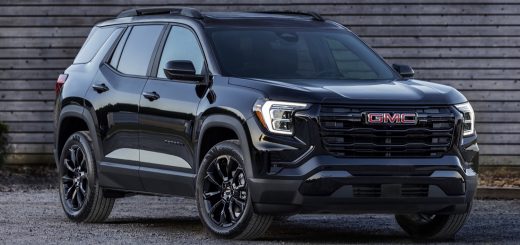




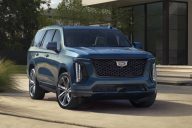

Comments
This just goes to show you how wrong some of you are making comments on “ALL THE FAILURES” with lifters or transmissions. 402 MILLION vehicles were analyzed and they had been doing this study since 2013, this isn’t a word of mouth piece or some rando saying he works at a shop and has XX number of vehicles currently in there for lifters or transmissions. Some of you just do zero research and regurgitate what a few people say. You know what, it is easy to lie on the internet…
This study backs up what I have been saying and know, and it is two things. One, there are a ton more people out there giving input that is opposite of contradicts what some say. IE failures on vehicles or features/powertrains they deem wrong. So many people have input and studies done on what to do or put in a vehicle. If they were say down on power (hello 1.5 naysayers) or having tons of failures that some want to deem 25% or more (lifters or transmissions) then the studies or those analysts/researchers/customers would have made a change happen.
Second, having worked in a large automotive company at the corporate level in the warranty side, the rate of failure to trigger a recall is actually quite low. It has been a few years but it was somewhere between 3-5% where both the cost and customer/public image deem a recall and replacement is warranted. Granted that also depends on what is failing and how expensive that is, there is a difference from a light switch to an engine or transmission. Still, the failure rate of transmissions and lifters are in the LOW single digit percent. Probably somewhere between 1-2% I would imagine.
So no, lifters aren’t failing on the regular and neither are transmissions. The guys that post they know X number of buddies that have or say they work in a shop (or their local dealer they visit) has XX number waiting for them, are just flat out lying and can be chalked up to fan boys of other brands who it makes them feel good to go to other brands and embellish others problems.
Man……go to a Chevrolet dealership and just ask them how many lifters are failing. This is a REAL issue. No, it’s not 50%, but it’s a pretty large % that are. Certainly more than just “normal” or “acceptable” in a mass produced engine. Some have had the lifters replaced, only to have them fail a second time in a matter of days.
When you say people are lying, you could be right. You say they don’t have any facts to base that off of other than hearsay and they have no merit. I’m not sure how that’s ANY different when you say “probably somewhere between 1-2% I would say”……you pulled that number out of the air with no special insights or facts. Just conjecture. That doesn’t make your analysis any more credible than anyone else speculating.
The Chevrolet dealerships in Qatar see PLENTY of DoD trucks are NOT ALL FAIL…
You are likely lying as well……
Show me proof, will you?
If you say you do not need to…what you are saying is a LIE. I AM NOT SAYING THAT A SMALL NUMBER do not suffer problems, the vast no are TROUBLE FREE not like you complainers like to say otherwise…
Try and contradict me…sir.
DId you read what I wrote? That number was pulled out of mid air from the facts I know working at a fortune 100 company directly in the finance warranty side at corporate. It was somewhere between 3-5% that financially would make them trigger a mass recall. So my number pulled out of thin air has a 4% spread in margin of error. This has not happened nor is the case with lifters. So at the HIGH side it is just under 5% failure. I promise you knowing what I do historically, it isn’t 4.85% having failures. This issue is being blown way out of proportion. It isn’t 10% or more as GM would have a mass recall on their side to preemptively replace them to avoid A, replacing full engine failures from damage and continued driving, and B, image damage from so many failures and lost sales. Image is one thing I learned while getting my MBA and the impact that can have on current and potential sales.
So no, I am not some guy like you just did saying, go look at a dealership and ask how many failures there are. I have close second hand knowledge of the process and what triggers recalls which if the failure rate was so high as some make it seem would trigger it.
Lets do a little math shall we? Let’s say GM has 1,000,000 of these engines produced each year (that is a little high but lets go with it to keep the math simple). a 3% failure rate is 30,000 engines. Now there are roughly 4,000 dealers in the US, that is 7.5 failures per dealer. Now that will be skewed based on dealer size and demographic. A dealer in say DFW will have a ton more volume than a dealer in say Moreland Oklahoma. Some times these failures take a few weeks or a month for parts. So a local larger dealer can very easily have a few they see each month. If my service advisor says we have 3 in for lifters right now, may sound alarming huh? Multiply that by several years of a run of vehicle (the 5.3/6.2 that many say are failing started in 2014 with the ecotec motor) is nearly ten years of engine production, that is a ten million total, 300,000 failures and at any time a dealer can have lets say 10+ waiting. THAT IS STILL AT A 3% FAILURE RATE.
Seriously, this is a mountain out of a mole hill. If we had social media 30+ years ago, you’d year about an alarming number of failures for other things that are major. But unless it triggers a recall, it is a overall very low single digit failure rate. They are in the business to make money, so if the failure rate is high enough, they will recall to save money long term with a larger up front cost. They haven’t done that, so what does that tell you?
So, we should trust NOBODY but you, for some reason.
BTW, Ford was on the same list, but I bet you tell us all about the TONS of EcoBoost failures and bla bla bla. Fanboyism works both ways, pal. This study doesn’t prove you right, and it doesn’t prove anyone with real world experience is lying. Except maybe you.
Ford does have REAL QC issues…and is the most recalled brand. Tons of recalls means that products are not leaving the factory right. I AM NOT excusing Chevrolet/GMC from this either….but with Ford this is an alarming issue.
Even Toyota has fallen as well…..even with them fixing the engines that cost 25k+ dollars….each. out of warranty that would be a tremendous expense…
Hmm got 310k MILEs not km, out of my 19 Ram 1500 classic with 5.7l before losing a lifter. Currently at 207k on my 21 f150 5.0. I would hope that a “heavy duty” truck it’s going to last much longer than a halfton…
Those RAMS do last if you do not idle them too much…
A 6.6L L8T is built to handle heavy abuse….more than a half ton is.
Sorry for down voting….did not mean to.
The 6.6L L8T gasser doesn’t have any complicated AFM/DoD. They’re talking about HD (2500 and above) trucks.
Lifter conversations aren’t really needed. Not talking about the L84 here.
My 2013 Tahoe 5.3L has 212,000 miles on it. Just took a 4,400-mile road trip. Purred all the way. My recommendations. Change all fluids regularly. Inspect hoses and fluid lines and change as needed. I change all fluids (except oil) every 50,000 miles. Oil is changed every 8,000 miles. For preventive maintenance, replaced water pump and power steering unit at 200,000. I don’t abuse my vehicle but have towed my boat across country many times. Boat weight 5,000 pounds with a lot of windage. Vehicle is in good shape. Crack in windshield and dash. Interior door panel handle cracked and needed repair on both sides. Restuffed driver’s seat.
My neighbor has a 2012 Toyota Sequoia with 310,000 miles on it. Transmission just went. Otherwise, a very solid vehicle. He wants to have the transmission replaced by dealer, but they are giving him a stupid price. I recommended he get a rebuilt transmission installed by an independent repair center considering age and mileage.
They sure do last.
The Seqouia and Tahoe are both good in terms of what they do….
But I suspect your Tahoe will be easier to work on….
I don’t know if many of you are old enough to remember the 283 cu in V-8 Gm made so many years ago. It was discontinued because it went forever if maintained properly. How many 350 V-8’s has GM produced? Certainly hundreds of thousands so they “Know” how to build it to last! if you purchased your vehicle through the “Parts Dept. ” the cost would be excessive. making money is the name of the game. Unfortunately depending where you live, “Rust” will ruin your vehicle before the drive train goes so making a motor and transmission last 1000,000 miles is not practical unless you live where it is dry.
An engine / transmission combo should last at least 20 years and depending on usage and maintenance. The manufacturers can do it and they have proven it possible. Customer satisfaction should be NOT just “words” but testimonies! My 2021 GMC 3500 HD with the Duramax and Allison should go 1000,000 miles but I’m sure I won’t be around to witness it.
Marketing B.S.. GMC was better way back in the day, but they are identical today, just a different grille. As others have stated, the biggest factor to mechanical longevity today is doing the preventive maintenance. Older drive trains had much larger clearances and were tolerant of dirty lubricants.
That probably also explains why I saw Squarebodies and GMT400s being used as technical gun platforms by some armed groups in the Middle East…..
They are incredibly tough like the LC70/Hilux, can haul a rocket launcher MUCH better and tow a lot more , and can withstand a ton of abuse….
Sorry for the down vote. My apologies
That probably also explains why I saw Squarebodies and GMT400s being used as technical gun platforms by some armed groups in the Middle East…..
They are incredibly tough like the LC70/Hilux, can haul a rocket launcher MUCH better and tow a lot more , and can withstand a ton of abuse….
Sorry for the down vote. My apologies
Yeah, 250k miles with 2 transmissions. And before anyone claims I’m “over blowing the #’s”, my 2019 LD, my dad’s 2016 Tahoe, a family friends 2020 Suburban, another friends 2019 Yukon, another friends 2020 Tahoe, all needed new transmissions BEGORE 100K MILES! Mine wasn’t fully blown yet, but at 58k miles Chevy decided to put a new one in while it was under warranty (they claimed I could only get another 20k outta it). All 6 speeds.
As far as lifters, only the 2020 Tahoe needed Engine work around 22k miles. My dad’s Tahoe had 4k engine hours over 104k miles, and very rarely had the oil changed before the truck said to. Not one issue with the engine.